At one Sunday meeting, several Quaker Friends commented on a rally they attended in support of the Muslim community after the New Zealand shootings. All who spoke, remarked on an Evangelical pastor who addressed the rally and asked for forgiveness; stating that the religious right bears some responsibility for the divisive tone in our country. What was so moving about this moment, was that each of the Quakers confessed to how they struggled with the idea of forgiving this person.
Forgiveness is easier accomplished in concept than in the messy reality of life and relationships. That’s why the testimony of these Quakers was so profound to me. By verbalizing their struggle in forgiving this pastor, my Quaker Friends shared their own vulnerability with the rest of us. In one gospel passage, Peter asks Jesus if forgiving someone seven times is enough. Clearly, Peter was done with forgiving and wanted to move on. By responding that we must forgive not seven times, but seventy times seven times, Jesus was instructing us that forgiveness is a journey we must take within ourselves and with those whom we are struggling to forgive. The essence of the forgiveness journey is to arrive at the place where we are able to forgive from our hearts. How do we reach that place where we can let go of the pain, the anger, the mistrust, the guilt, the resentment, and all those confusing feelings that get wrapped up with a sense of being harmed? I believe that my Quaker friends begin to show us the path towards forgiveness. The first step – the one they shared with us – is to acknowledge that we all are imperfect people. We know we should forgive, but we just aren’t ready. It is a mistake, I believe, to deny our feelings of anger and resentment. We must acknowledge them. We must own them. But then we must let them go. I know that letting go is easier said than done. I’ve written about this previously, but want to touch on it again here. Whenever I find myself in turmoil over something that someone has said or done toward me (imagined or real), I hopefully get to a place where I begin to see that there are a lot of “I” statements driving my emotions. I was hurt, I was misunderstood, I was maligned. When I awaken to the many “I” statements driving me, I realize that I am at a place where my ego is outrunning my soul and it is time to slow down. It is time to quiet myself and listen for the whisper of that still, small voice guiding each of us. I’m sure my Quaker friends worked hard to still their hearts and minds and to listen to the voice of the inward guide when they realized they were being asked to forgive someone when they weren’t yet fully prepared to do so. When I reach that point where I know what I’m supposed to do, but can’t quite find it in my heart to act, it is then that I realize that this is beyond my capability. It is then that I give over all these conflicting and confusing thoughts and desires and place them at the foot of God. One of my spiritual heroes is the Trappist Monk, Thomas Merton. Among the many books he wrote is the Sign of Jonas in which he penned what I have found to be one of the most profound statements on mercy that I have read. Merton wrote: God says “What was vile has become precious. What is now precious was never vile. I have always known the vile as precious: for what is vile I know not at all. What was cruel has become merciful. What is now merciful was never cruel. I have always overshadowed Jonas with my mercy, and cruelty I know not at all. Have you had sight of Me, Jonas, My child? Mercy within mercy within mercy." That image of the Divine as endless mercy has haunted and inspired me from the first day that I read it. It haunts me because the aspiration of showing mercy within mercy within mercy, is one that I fail at time and again. I have come to understand that I must accept God’s mercy for me before I can extend mercy and forgiveness to others. That, I believe, may be the most difficult part of the journey towards forgiveness.
1 Comment
Is it possible to live a sacramental life in these times? I’d like to think so. A sacrament, according to one definition is “an outward, visible sign of an inward and spiritual grace.” My guess is that many feel they aren’t living with a sense of internal spiritual grace. In fact, I would bet that a large number of us live an internal life we would define as one of turmoil, of anxiety, of wanting, of despair, of confusion, of doubt, of fear, punctuated occasionally with a sense of joy and grace.
It seems that we are a paradoxical people whose lives vacillate between angst and tranquility, and given that, how could we ever hope to lead a grace-filled life? Here is one example. I had a high school teacher whose act of grace may have saved my life. I was always good at the subject of English in school. Language and writing is a gift that has come easily to me. Because of this gift, I became one of the favored students of Mrs. Clay, my English teacher. Once, in what I thought was a happenstance conversation, she asked me what I was planning to do when I graduated high school. I told her that me and my friend Buzzy were going to join the Air Force together. My answer shocked her. Keep in mind, I graduated high school in 1970, as the Viet Nam war was in full fury. A day or two later, Mrs. Clay approached me and asked if I would consider applying for college if she helped me. College wasn’t really on my agenda. No one in my family – at that point – had ever been to college. I said sure, because I liked her and didn’t want her to think I was ungrateful. Mrs. Clay did all the work. She acquired the college application to her Alma Mater – which was only 30 miles away. She sat me down to fill it out. She made sure all the signatures were in place. She mailed it in. I don’t even know if there was an application fee. And then she dogged me on whether or not I heard anything in response. That was the only college application I made, and I was accepted. She encouraged me to go, and I did. My friend Buzzy wasn’t so lucky. He did join the Air Force and was sent to Viet Nam. He came back as a haunted soul who would wake up screaming in the night. He ended up abusing drugs to numb his pain. I’m convinced that Mrs. Clay’s work to get me to college was an outward, visible expression of grace. She was kind and concerned and willing to do what she could to help out a precocious kid who didn’t think much about his future. What if tomorrow we all woke up and decided to live a grace-filled life, even if we didn’t exactly feel full of grace? What would it be like if you woke up and chose to be thankful for the morning? How would your day change if you peacefully ate your breakfast without simultaneously reading the newspaper or watching TV or checking your phone? What if you decided that your little one’s stubborn refusal to cooperate was a joyful expression of her growing awareness of who she is and how she can command her world? These decisions, and many like them are choices we can make. How many times through the course of a day might we get an opportunity to bestow grace upon ourselves, on those we love and those we encounter? What would our world be if we were determined to serve as an outward, visible sign of our internal grace – even if we weren’t so sure that grace was our motivation. Can our determination to act with grace and kindness become fertile soil for growing a bonified sense of our own internal grace? I don’t know if Mrs. Clay was a spiritual person. All I know is that she bestowed upon me a sacrament that changed my life. Perhaps, the intention of bestowing grace on others is the only sacrament we really need.
I was sitting in Starbucks, fighting back tears as I read the Eulogy that George W. Bush gave at his father’s funeral. I’ll be the first to admit that I’m a crybaby. I often find myself overcome with strong emotions; mostly at tender moments. If anyone looks at pictures of me at my daughter’s recent wedding, they will see that in many of them (walking down the aisle, the father’s toast, dancing with the bride) I was teary-eyed.
But that doesn’t explain my emotional struggle over the eulogy for George H.W. Bush. This is especially puzzling because I was not much of a fan of either of the Bush men when they served as President. I figure the tears at Starbucks have more to do with where I am in life than with the Bush family. We are coming up on the anniversary of my mother’s death. And, while my father died 30 years ago, I still miss him and occasionally talk to him in my mind. I now know that as I sat reading the Bush eulogy, I was remembering the passing of my parents. I was also – at some level – brooding over the time in the unknown, but shrinking future when my own children will be standing at my funeral and telling the story of me through their eyes. I have learned, in hind sight, that the tears I shed at Starbucks came from a shared sense of humanity. Like I said, the Bush presidents weren’t my favorites, but the tearful words of the son for the father brought out a kind of kindred mourning. George W. Bush was no longer a distant politician whose policies I disdained. He was transformed into a fellow son, mourning the passing of his dad. A friend of mine – a Quaker of long standing and of deep wisdom – recently remarked that we all should learn how to “listen in tongues.” While she applied this idea to Quaker spirituality, I think it can be understood more deeply. Listening in tongues means that we strive to hear the voice - and the pain behind the voice - of those we encounter. Each person has a unique life story; one full of joy, sorrow, disappointment and pride of accomplishment. Isn’t that the lesson we are all learning through the study of Adverse Childhood Experience: that no person is just “one thing.” The present is often crowded with the ghosts of our past and if we don’t learn to listen to those ghosts, we run the risk of repeating our mistakes. By understanding my own pain over the death of my parents, I can begin to see George W. Bush in a more compassionate light. And because of his vulnerability and willingness to share his pain with the world, we gained a new insight into his heart. Listening in tongues means that we learn to hear the heart of each person; that we can hear the whisper of the ghosts still haunting them, that we can hear their fears and their dreams, no matter how faint they may be or how deeply they may be buried. The first step in learning to listen in tongues is learning to hear our own heart; to discern our true voice over those of our frightened self, seeking to cover over our pain. And once we are practiced at listening to our heart, we will find that our center is one of goodness and light. The next step in learning to listen in tongues is to acknowledge that each person we meet also has a center that is goodness and light but for some, that light is faint and the sound of goodness is drowned out by the cacophony of their fears and adverse lessons learned from their past. In the final analysis, listening in tongues is not listening at all. It is most simply, an act of love. And for that, we need no translation.
When a pendulum reaches its maximum arc, the velocity is zero. Everything stops. With the recent election, it feels like the pendulum stopped swinging and soon perhaps, it will begin its journey back to the center. Beginning in January 2019, we will have returned to a system of shared governance; one with appropriate checks and balances, as envisioned by the framers of the Republic.
The American system of government was designed to mitigate two competing visions of authority. On one side were those who feared the tyranny of the majority, believing that a pure democracy would lead to chaos. Those on the other side feared the tyranny of the minority; that a person or a party could impose their will on the unwilling. And so, our founders devised a government designed to limit the ability of any party or person to create too much power. America is a divided country at the moment: Urban vs. rural, educated vs. less educated, white vs. people of color, Democrat vs. Republican, wealthy vs. the poor and the dwindling middle class. With a country so divided and at so many levels, perhaps what we need the most right now is a divided government; but one that uses the division of power to seek compromise and addresses the root causes of our disunion. Joseph Stiglitz, a Nobel prize winning economist, writes “There is a widespread sense of powerlessness, both in our economic and political life. We seem no longer to control our own destinies….For a third of a century, the American economy has failed to enhance the well-being of a majority of its citizens” Stiglitz was discussing how large corporate monopolies have exacerbated the social and economic problems facing America and have worked to pervert the political process. Corporate and political monopolies have brought us to a place where our political and economic systems no longer work to improve the life of the average citizen. We are a country that is racially, economically and geographically divided while at the same time our two political parties fight for sole control of all levers of government in order to impose their own priorities on everyone. It is no wonder that our country feels on the verge of imploding. The rich are getting opulently more wealthy as the already powerful strive to amass more power, and the average citizen is feeling socially and economically squeezed and evermore powerless. At a time where we sorely need a divided government to inhibit the tyranny of the minority, we also need an engaged populous in order to hold our politicians and captains of industry accountable. We need to get back to a government and an economy that works for all of us and not just the connected or privileged few. This isn’t really so farfetched. It feels like we are on the verge of this very movement now. We have both aspects already underway: a divided government and an engaged populous. Expecting a divided government to solve our problems is not all that outlandish because there is broad consensus on a variety of “divisive” issues. According to a series of Gallup polls, the majority of people support gun control. We support an improved environment, and healthcare for everyone. A large majority believe immigration is good for America and that repairing our infrastructure is key to our ongoing economic wellbeing. Significantly, the majority of Americans also want government to work better by ending the partisanship and finding a way to compromise and solve our most pressing problems. The American people have a unified vision on a wide variety of significant issues. It is our political parties and corporate elite that ignore the will of the people and who seem hell bent on amassing power, often at the expense of social and economic progress for the country as a whole. Our country is divided – as Stiglitz points out – because the political and economic infrastructure has failed us. The push for more money and more power – at all costs – has driven divisions through the heart of America. But now the pendulum has stopped. We can take a breath and get ready for the pendulum to swing back as it picks up speed. Our job is to ensure that the momentum works to our advantage. Our job is to ensure that every politician and corporate elite understands that for American to thrive, we need to focus on the common good. The politics of power for power’s sake are done. The time of amassing wealth at the expense of the many are over. A divided government is a government designed to ensure that the considerations of the many take precedent over the whims of the few. But, this will only work if we stay committed and engaged. The pendulum has stopped for now. But we cannot.
I feel compelled to make one observation. The president wants us to be afraid of the immigrants and asylum seekers hoping to cross our border, when the real terrorists are home grown middle aged – and for the most part – white males.
We hear the threats almost daily about the immigrant caravan that is yet 900 miles away, stating - with no evidence - that it serves as a cover for gangs and terrorists wanting access to our country. Yet, the real terrorist are already here. Cesar Sayoc – the pipe bomb terrorist suspect who tried to assassinate 14 high profile critics of the president is a mid-fifties male, born and raised in America. Robert Bowers, the gunman who killed 11 worshipers at the Pittsburgh Jewish Synagogue is a white male, born and raised in America. Gregory Bush, the suspect who shot down two people at a Kroger grocery store in Kentucky is a white male, born and raised in America. In fact, more Americans are killed by right-wing, American born extremists than by any other group. Terrorism is born out of hatred and hatred is born out of fear. If we want to stop the home-grown terrorists, we have to stop stoking fear and begin dealing with the real - social and economic issues driving that fear.
 Distributional National Accounts: Methods and Estimates for the United States - Table II Distributional National Accounts: Methods and Estimates for the United States - Table II I’m not a bird watcher by any means, so when I saw the word Shrike used as a title for a haunting song by an artist named Hozier, I had to look it up. The Shrike is a small bird – no bigger than a Robin – that lives in a hedgerow and impales its prey on thorns. For obvious reason, that image of a bird using a thorn bush as its own personal pantry was difficult for me to shake. I ruminated about it for days. Around the same time I was thinking about the Shrike’s unique hunting and feeding style, I read a report on the American economy – comparing population and income from 1946 to 1980 and then from 1980-2014. This report, written by Thomas Piketty and a couple of UC Berkley professors, provides an equally haunting image; one that helped me better understand the seething sense of anger that bubbles up in social media and political campaign and in op-ed articles at just about every turn. The authors state that “for the bottom 50% of working age adults….income has collapsed since 1979.” I know that we’ve seen this data in other ways, but the charts are stark and stunning. In the 34 years between 1946 – 1980, the bottom 50% and the middle class was doing quite well. For the most part during that period all lower and middle income groups saw incomes rise by more than 100%. At the same time, the top 10% had more modest income gains; somewhere between 47-79%. But, in the 34 years between 1980 and 2014, the wheels fell off for the lower and middle income families. Instead of income gains, those at the bottom saw a 25% decrease in income while others saw only single digit increases. During those same 34 years, the wealthiest segment of the population saw income gains above 200%, 300%, 500% and even 600%. The data is pretty astounding. I was pondering these reports and had the image of the Shrike in the back of my mind as I was walking into a Quaker meeting on a recent Sunday and the two images just merged together. I stopped walking and stood for a moment to absorb the thought. I came to the realization that we are living in a Shrike world, where lower and middle income families are impaled on the spikes of the economy so that the wealthiest can feed themselves to excess. I’m not sure what to do with this image and information. Just writing about it doesn’t seem to be enough. I’m old enough to remember the venerable Senator William Proxmire, a Wisconsin legend. I especially remember his Golden Fleece Award – issued monthly to government agencies that Proxmire thought were wasting taxpayer dollars. Maybe it’s time to bring back that Proxmire tradition. Maybe we should begin issuing monthly SHRIKE awards to the people and companies who do the most harm to lower and working class families; to those who use their position of influence and power to enrich themselves and their friends at the expense of the community. The SHRIKE award shouldn’t be limited to politicians. Slumlords would be an apt recipient as too would be the folks who were operating an opioid prescription mill in Wauwatosa, WI. How about doctors who scam Medicare to enrich their own pocketbook? Big environmental polluters would be good recipients. After all, many companies pollute the environment while reaping profits from their actions and leave the “clean up” from their mess up to the taxpayers. Once you start thinking about it, the list of possible SHRIKE Award recipients seems – unfortunately – endless. Who will you nominate?
Being a Quaker is hard work. Quakers have no creed or dogma and consequently, each person is left to work out his/her own relationship with God and the world. This is done through prayer, reflection, studying, reading the bible and other inspirational works and in conversation with friends. The following is the result of my discernment over the course of a lifetime.
Sit in Stillness and Listen for God – I’ve come to learn that everything is grounded in prayer. I usually get into trouble when I act without prayer; when I listen more to my ego than I do for the guidance of God. When I listen to my ego, I usually find myself setting up a false duality: It is me against you. It is me against the world. I have to protect myself so no one can take advantage of me. The other default when I listen to my ego too much is that I fall into a cycle of frantic thinking. It’s like having a sleepless night. I want to go to sleep – but my mind keeps racing with one thought driving out another, and then another, and then another. You get the picture. Prayer usually brings me to a calming center where I can watch (sometimes with amusement and sometimes with humility) how my thoughts can take me down a road I shouldn’t travel I used to pray by asking God for things: for clarity on what I’m supposed to do in life, for the safety of my family, for justice in the world. In retrospect, my prayers were pretty much a one-way street. I spent more time asking (urging, begging, cajoling, bargaining) than I spent listening. Now, my prayer time is just to sit in stillness and listen. That’s it. This sounds simple but it takes practice and discipline. Here is a resource for anyone wishing to explore this unique way of being in communion with the Devine. There is That of God in Everyone – This is usually associated with a belief espoused by the Quakers. But, I came to the Quakers because the idea that God is present within each of us is something that has been guiding me for years. To say this in a more mystical way – I believe I am a spiritual being linked to God through my unique and eternal soul. Pierre Teilhard de Chardin perhaps expressed this the best when he wrote “ We are not physical beings having a spiritual experience; we are spiritual beings having a physical experience.” This idea that we are spiritual beings linked directly to God is what makes the contemplative prayer I discussed above so relevant. When we sit in stillness and listen – we are not listening to a God that is somewhere “on high”. We are listening for that part of the divine within us. We are tapping into the presence of God that is always available to us. As the eastern poet Rabindranath Tagore said, “The winds of grace are always blowing. All we need do is raise our sails.” Sitting in stillness is how we raise our sails. This and Thee are the Glory of God – I am an ardent sailor and I find it appropriate that I had a mystical experience on a sail boat. Sometimes, usually in late July or August, we get a spectacular moon rising from the horizon of Lake Michigan at the same time that the sun is setting over the city. This was such a night. The sky was pink, the wind was warm as I stood in the back of the boat taking it all in. Suddenly, I had a thought which was: “This and Thee are the Glory of God.” I was marveling at my surroundings and could easily understand the world as an expression of the glory of God. But me? Am I an expression of the glory of God? It took me a many months of pondering this thought to fully accept the idea that – just like the moon rise over the lake – I am a unique expression of the glory of God. And, so are each of you. This is the same sentiment expressed in the Gerard Manley Hopkins poem – As Kingfishers Catch Fire. The seminal line in the poem is “ What I do is me; for that I came.” We are each unique and glorious and an intimate expression of the love and creativity of God. The Link Between Prayer and Action – Prayer must lead to action. If we are truly praying and truly listening for God’s response to our prayer, then we are led to act. My faith tells me that the only way God moves in the world is through us. If we aren’t grounded in prayer and working for social justice, then we are not fulfilling our spiritual mandate and we are not helping to bring forth the kingdom of God on earth. Conversely, action that isn’t rooted in prayerful contemplation can quickly become nothing more than an ego-centric battle to win; where we are comfortable with the idea that the “ends justify the means”. The ends do not justify the means if the means we undertake are hateful, deceitful or demeaning. We see enough of the hate driven action for change to know that it cannot be centered on the Devine. Evil is the Absence of Light, Not the Presence of Darkness – I’ve thought quite a bit about the idea of evil and the devil. I don’t believe in the presence of an eternal evil being. I believe that God is within each person and those who act with evil intent are people who allow their ego to drive them; people who spend little time contemplating the call of God within their own heart. The best analogy is in nature. Does it get dark at night because some entity of darkness descends upon the world, or does it get dark because the light of the sun is on the other side of the world and hidden to us. It is the latter. It is the same with the light of God in the hearts of people. Mercy Within Mercy Within Mercy – In his book, The Signs of Jonas, Thomas Merton pens a quote that I find to be a comforting expression of God’s love and mercy. We would all do well to live a life centered on the thought that we shall bestow mercy within mercy within mercy to all we encounter. Here’s the quote: “I have always known the vile as precious: for what is vile I know not at all. What was cruel has become merciful. What is now merciful was never cruel. I have always overshadowed Jonas with my mercy, and cruelty I know not at all. Have you had sight of Me, Jonas, My child? Mercy within mercy within mercy.” So, my spiritual journey over 60 plus years has led me to this: Sit in stillness and listen for God’s call. Act on that call, knowing that you are loved regardless of what you do. Don’t succumb to the idea of evil and remember that God’s mercy is afforded to each of us, just as we afford it to all others.
I celebrated my 66th birthday recently. For some reason, this one seemed like a bigger deal than others; even bigger than turning 60. I suspect it’s because 66 is the age I’m officially eligible to receive full Social Security benefits – which seems like something an old man would be doing. I don’t feel all that old – certainly not old enough to be collecting Social Security. But like it or not, here I am.
Given this milestone, I’ve been in a reflective mood and decided to write down some of the things I’ve learned that are important to me. As I began this exercise, I found that the “learnings” fall roughly into two categories: personal and spiritual. I’ll write about the personal items today and pick up on the spiritual ones in the next post. So, here we go. Live Life with Honesty and Courage – My wife Jennie is an RN who specializes in working with older adults. She has seen quite the range of elders and the issues they face. Jennie’s conclusion is that “getting old isn’t for sissies.” It’s never a good idea to kid yourself, but it presents particular difficulties for those who are aging. Now is a good time to practice being honest about what I can and can’t do; about what accommodations to aging I need to make. I don’t want to be that guy who causes the family to have a secret meeting about when to take away the car keys. I’d like to believe I can see when that time is here and have the courage to do the right thing. People Irritations Begin in My Own Heart – Leaving dirty dishes in the sink for someone else to clean up: Urrrg. Getting cut off in traffic or having someone speed up on a closing lane so they can jump ahead – isn’t that why God gave us FIVE fingers? Someone lies to you or you’re confronted with an unscrupulous salesperson – don’t they deserve to hear it from you? These and hundreds of other irritants can turn a hopeful day into a funk if we let it. And that’s the key: if we let it. I’ve found that the actions of others are neither positive or negative, until I assign a value to them. Stephen Covey tells us that “ I am not a product of my circumstances, I am a product of my decisions.” Or, said another way – also by Covey: “between stimulus and response is the ability to choose.” Consciously or unconsciously, we choose how we respond to all situations. But often – we refuse to take responsibility for our choices because it is easier to believe that our reactions are somehow not within our control. Taking responsibility for our reactions also refers back to being honest with ourselves and having the courage to change what we see. When I find myself confronted with these “irritating” situations and if I’m in the right frame of mind – I try to ask why am I allowing myself to be so upset? What is it in me that is bringing forth such anger over such small actions by others? Now, I fully recognize that there are times when people do things that genuinely affect the mental or physical health and well being of others. And that is when we need to have crucial conversations. Tough Conversations Must Be Grounded in Love - I’ve always been pretty good at what I call “table combat”; that verbal back and forth between people who are trying to win an argument or make a point. I’ve found that in these situations, my default is to believe that I’m being attacked and I have to win the battle; that I can’t let my “opponent” get the best of me. If I can catch myself before getting too deep into these confrontations – I’ve found another way to handle these conversations: that’s to step back and try to find that image of God within the other person. Once, my friend George was chairing a large and contentious meeting. People marveled at how calm and composed George was through the process; how patient he was with folks whom many wanted to just shut down so the meeting could proceed. Someone noticed that at the beginning of the meeting, George pulled an index card out of his jacket pocket and put it on the podium where he could refer to it. When asked what was on the card, George responded that the card said “I love everyone here.” I believe that is the key: focus on how to show your love for the other person and the fight instinct begins to fade away. Recently I wrote about a “triple love” decision-making process where we are reminded to seek a win-win-win solution by finding a way to: · See how our actions bring us closer to God · Treat others as our neighbors · Respect ourselves in the process. Sit in Stillness and Listen for God – I’ve found that all of the above is immensely easier when I follow a daily routine to sit in stillness and listen for the leadings of God. My next post will talk more about this and about my spiritual learnings over these past six decades of life.
Now that they have all been rescued, I think it’s safe to talk about how the world responded to the Thailand Soccer team that was trapped in a cave, in contrast to how America is treating refugee children and families on our southern border.
It is heart-warming to see how the world responded to these 12 trapped boys and their coach, sending supplies, food, water and volunteers from around the globe. Experienced cave divers just began showing up, knowing that their particular expertise could be helpful in such a dire situation. No effort was too much and no expense too great in the frantic attempt to rescue these boys. Certainly, this was a made for TV event. Twelve young boys and their soccer coach stranded in a damp and black cave as the monsoon rains brought a swift and murky stream of water blocking their path to safety. The death of one of the rescuers and the thought that the coach taught the boys meditation to help them focus on the stillness within, all made this remarkable story even more captivating. On the other hand, had these 12 soccer players been refugees fleeing unspeakable violence from Central America, they would have found scarce offers of help – even though their plight would be just as dire. The reports of brutal murder and violence sparking the current refugee crisis in Central America would place these same boys in an equally untenable situation, with their lives in danger. In the northern triangle of Guatemala, El Salvador and Honduras, women and girls are facing daily risk of rape, murder and extortion and are becoming prisoners in their own homes – too fearful to venture out. Stay and risk being murdered, raped, enslaved, and mutilated– or risk a treacherous and long march to safety through Mexico to the United States. That’s the choice these women, men, and children face. But there is no rush of food, supplies, money and volunteers to help. There are no TV cameras stationed on site 24/7. Even the traditional nonprofit organizations that usually provide assistance in a refugee crisis are reticent to help. Why do we spare no expense to save one set of children, but then turn our backs on another? The world saw the young soccer players as people – as children of God and worthy of all costs to save them. But, are these refugee children from Central America any less worthy? To coin a phrase from a 1980s movie, are they “children of a lesser god?” Instead of being saved from certain death and whisked away for the best medical care available, these families who are fleeing violence are treated as criminals. They are placed in handcuffs, and the children are separated from their parents. And, every effort is made to send them back to the very violence that drove them to our borders. The difficulty may be that the refugee families present us with an adaptive problem ; one that requires us to confront our values and how we view others. It requires us to cross over political, ethnic, and national boundaries. In short, it asks us to look at ourselves in a new way and to look at these families with a new heart. Some may wonder why I keep harping on this southern border refugee issue. It is because the plight of these families and our hostile response to their plea, forces us to confront who we are as a people of God. Our response thus far flips the narrative around. It is we Americans who are stranded in a dark cave unable to see the light of God in the eyes of these refugee families. It is America who feels vulnerable and threatened by the rushing water of integration that will be washing upon our shores by 2044 when we become a nation where white people are the minority. It is we Americans who are waiting in darkness, fearful of what we don’t know and of what we imagine our future to be. Perhaps – like the soccer team – we should embrace the darkness, using it to quiet our minds and hearts and to tap into the stillness of our soul. Perhaps we should wait in the darkness and listen for the voice of God. And what will we hear? We will hear that we must “act justly ,love mercy, and walk humbly with our God.” At least, that’s what I hear.
It feels like the world is on the verge of a significant paradigm shift; one that will shake the foundations of all that we know.
When major institutions become rigid, when they are propped up with artificial support so they might remain standing, but can barely function – it is then that one should be on the lookout for paradigm shifts. That certainly sounds like the world we’re living in today. Our historical allies are now our enemies. Our former enemies are now our friends. The effectiveness and legitimacy of our government institutions is called into question. Our elections are suspect. The American public has voiced its support on issue after issue such as gun control, immigration, minimum wage, health care, environmental sustainability, climate change and more – but yet our government continues to pass legislation ignoring the voice of the people and in support of special interests. Inequality has grown, and wages have stagnated while at the same time corporations have garnered record profits and a lucky few families have become opulently wealthy. Thomas Friedman, a New York Times columnists recently wrote a fascinating and insightful article, asking the rhetorical question: Why are so many political parties blowing up? Friedman writes that here in the USA and across the world, people know that the system is out of balance, but they don’t know what will fix it. And so, they are voting for dramatic change. Any change. One need only to look at recent elections in America, Mexico, Italy, France and Germany- to name a few examples. The three issues driving these changes, according to Friedman are: Climate change, a growing geo-political economic interdependence and technology in the workplace that reduces the need for workers. These changes are creating winners and losers; countries that are maintaining growth and order and those that are not. And, people are fleeing from those countries where growth is stagnant, and disorder is on the rise. In these countries, according to the article “there is not enough order, sustainable land or industry to hold people” resulting in staggering 68 million migrants across the globe, which includes 25 million refugees. In summary, the world is changing beyond the capacity of our current political infrastructure to keep up. People are suffering. They are frustrated and are either voting for change or they are voting with their feet and moving to countries perceived to provide more opportunity and more order. We are witnessing a profound global shift that will only worsen if we are not thoughtful in our long-term response. I want to talk about a framework for making decisions in uncertain times – both personally and as a country. This will require some of you to bear with me. I hope you will. What if we crafted a decision-making protocol that fostered a “win-win-win” ideology where every critical decision is weighed on how it impacts others, how it impacts ourselves and how it aligns with our values. Check out the matrix at the end of this article for an example. The Christian gospel tells us that the greatest commandment is to love God with all your might and to love your neighbor as yourself. The Jewish bible provides similar teaching. There are three aspects to these tenets: 1) Love God, 2) Love your Neighbor, and 3) Love Yourself. For this to work, each decision will need to satisfy all three criteria. It’s like baking a cake with five ingredients. If you leave out any ingredient – the cake falls flat. Let me explain: Love God – The majority of people on this earth believe in some type of Divine energy or presence. From that belief flows a set of near universal principles such as the “golden rule”, or be kind to strangers, or care for the poor or protect the environment. We should use our belief in God, or our belief in these common principles to guide us. As a Quaker, I ask myself “what does God ask of me” in this decision or in this situation. Or said differently – what do our common values say about what we should do? For example, what do our common values say about rolling back the protections for pre-existing medical conditions? Or about separating children from their parents? Or about spending $600 billion annually on military defense? Love of Neighbor – This should be an easy one, but it isn’t. We are told – across religious disciplines in multiple ways - that we should “love our neighbor as ourselves”. From a policy perspective this would translate to: Don’t create policy for anyone that will treat them unjustly. The difficulty may be in defining “neighbor” correctly. Immigrants, poor people, people with no health insurance are our neighbors. But so too are taxpayers. We need to consider both. Remember, this is a “win-win-win” exercise. Who is the neighbor we are helping when dealing with a parent who shouldn’t be driving? Is it our parent, or the people s/he may kill on the road? Or both? Defining our “neighbor” in this exercise is a critical step. This is why a commitment to the win-win-win principle of this process is so important. Love of Self – Now, this isn’t about self-adulation. This is about recognizing that we are all children of God and we should treat ourselves with the same love and respect that we provide to our neighbors. Focusing our deportation efforts on immigrants who have criminal records is one example of a policy that emulates love of self. We want to honor our immigrant neighbors, but we also want to protect ourselves from crime. A policy that tries to strike that balance between fair immigration standards and ones that screen out those with existing criminal records seems prudent. I have been using this triple love rubric to guide my daily decisions for a while now, and, it has made a difference. In more than one occasion I changed what I was going to do because it didn’t fit with the win-win-win criteria. I ask myself three questions: 1) How does this bring me closer to God? 2) How does this help my neighbor? 3) How does this honor myself? I encourage you to try it. The world could use some love-love-love right now. |
AuthorMike Soika has been a community activist for more than 30 years working on issues of social and economic justice. His work for justice is anchored by his spiritual formation first as a Catholic and now as a Quaker. Pre 2018 Archives
|
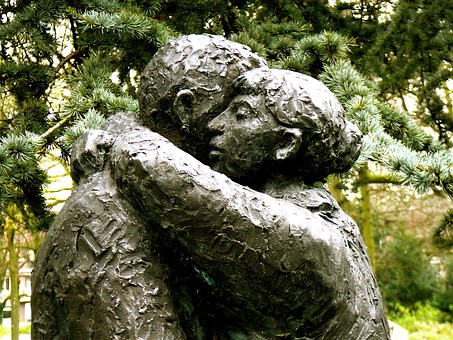

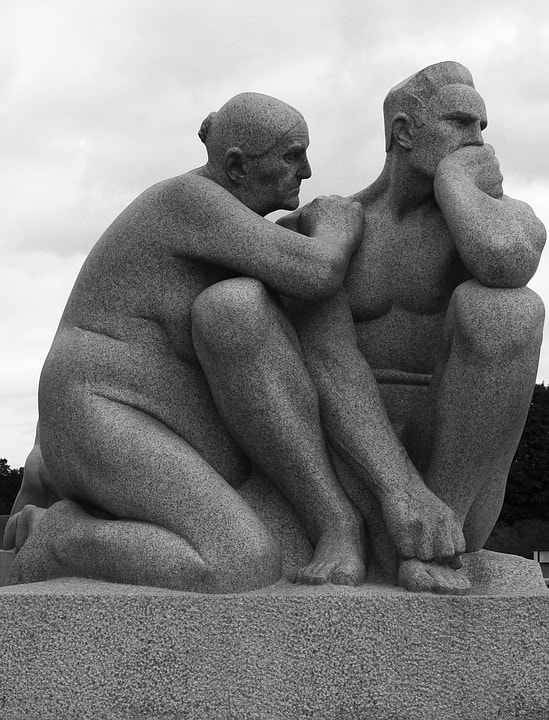
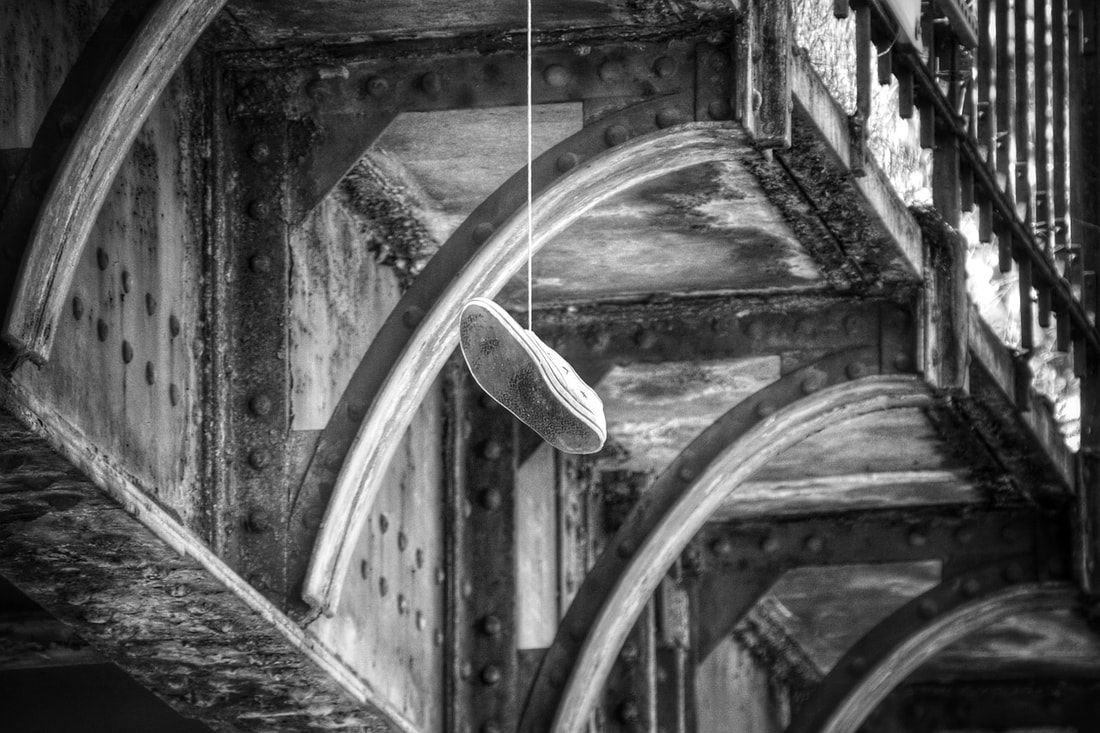
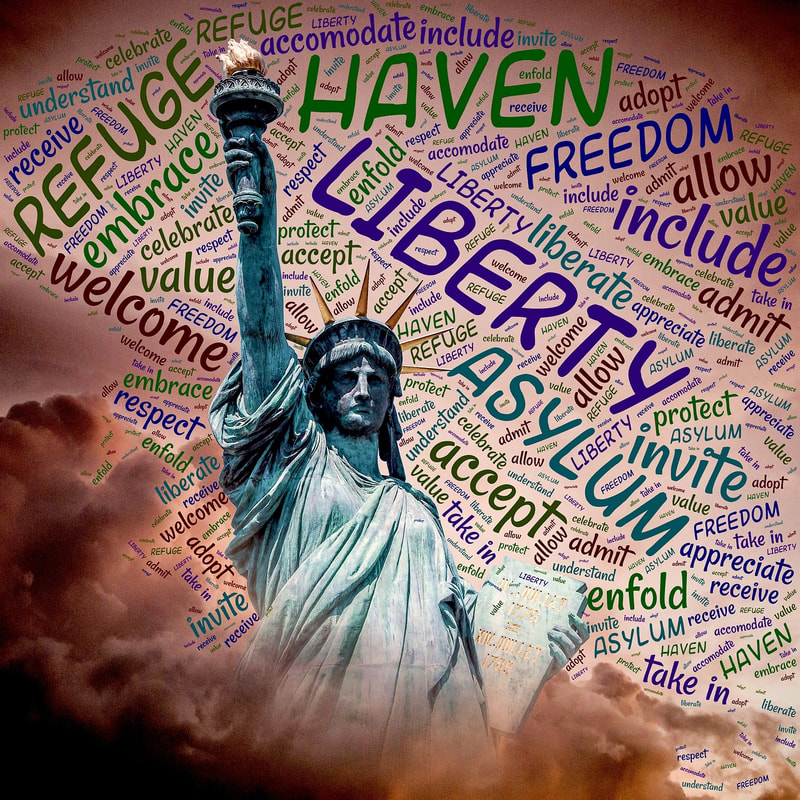

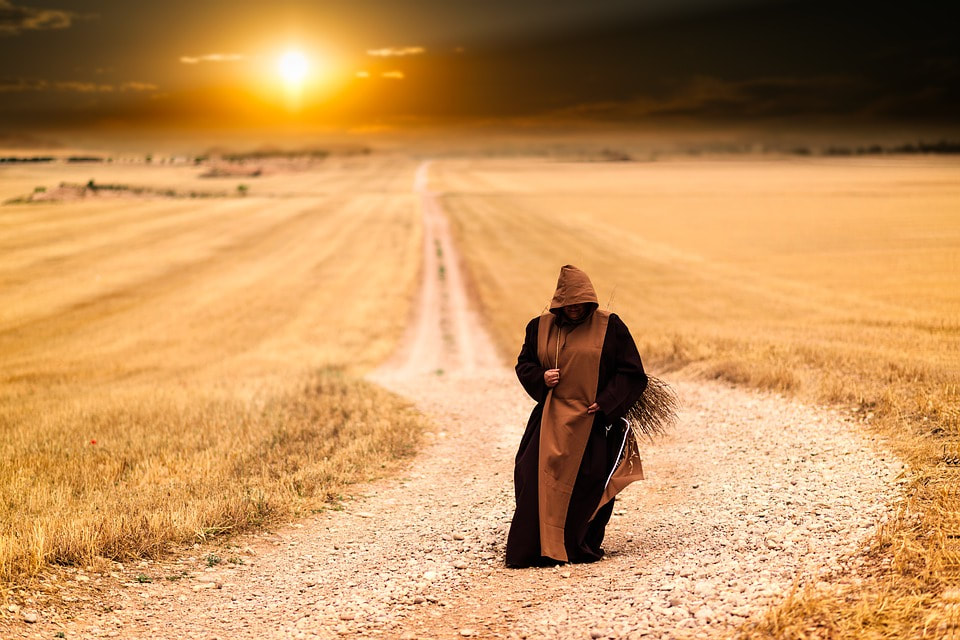
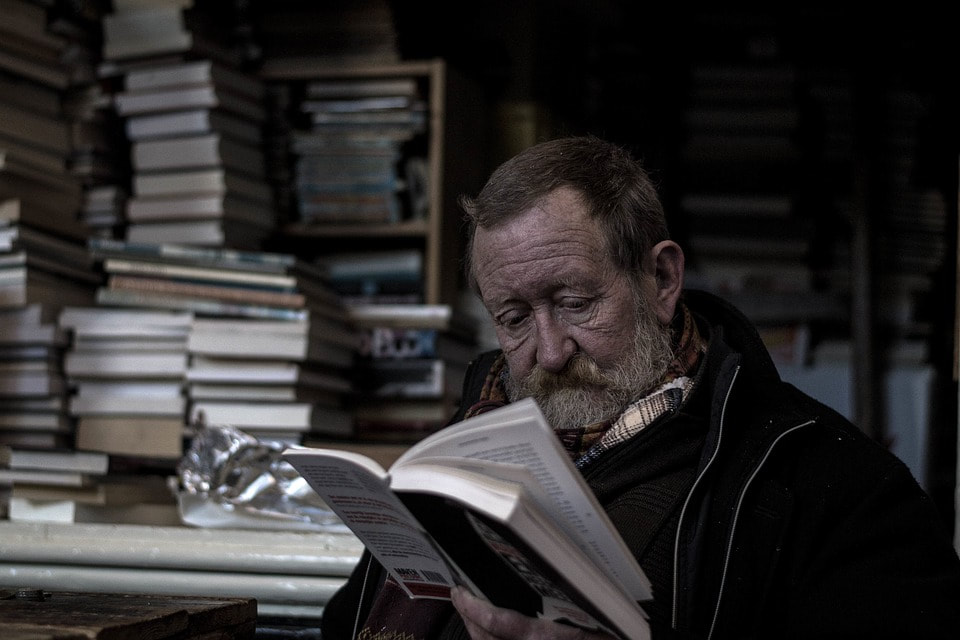



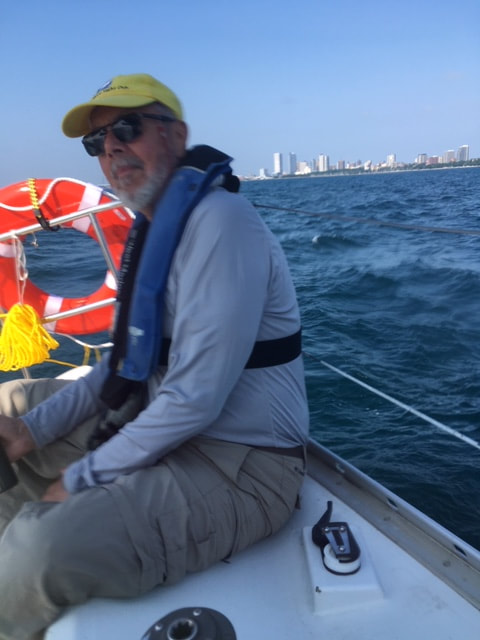
 RSS Feed
RSS Feed
